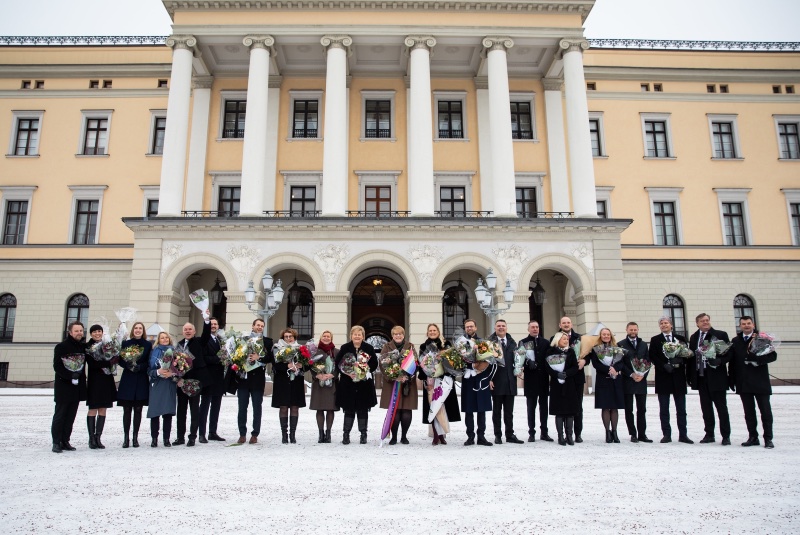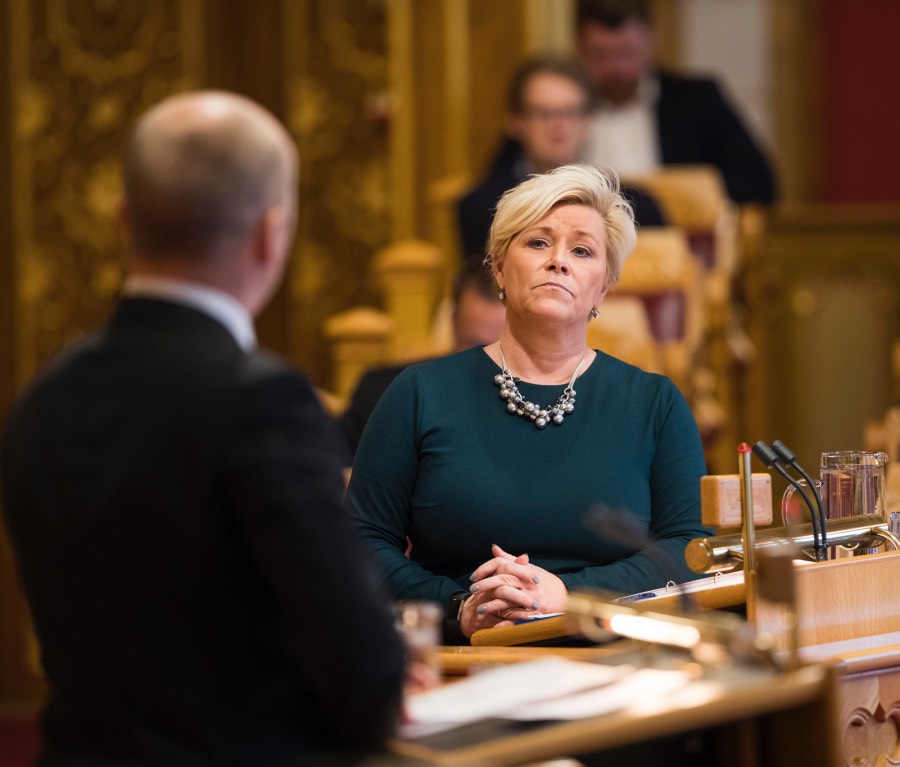Norway’s centre-right four party project is once again at risk of collapse, this time over immigration.
Venstre (Liberal) leader Trine Skei Grande has been described as a “passive spectator” in a row between Venstre leadership hopeful Abid Raja and Frp (Progress) leader Siv Jensen.

It is the latest in an increasingly long list of problems for the four-party coalition government. Before the recent elections, the government nearly fell in a row over road tolls.
But following the local and county elections that saw all four government parties lose support, questions are once being asked about the stability of the four party deal.
Immigration has always been a sticking point
The current government has tightened immigration policy throughout its term, albeit making tweaks over substantial change. Venstre’s Abid Raja sparked the current row last week by accused Frp leader Jensen of spreading “brown rhetoric” during the recent election campaign.
Frp campaigning made references to the “sneak Islamification” of Norway as well as references to immigrants in boats.
Read more: The Debate on Structural Racism in Norway
FrP demanded an apology from Venstre leader Trine Skei Grande, but that apology has not been forthcoming. Instead Grande has supported Raja. Jensen has called this move “unacceptable” and demanded that Grande take control of her party.

The Frp view
The row has continued on with both party leaders laying out their positions on immigration.
The Frp leader Jensen believes that Raja is trying to label their immigration policy as racist: “Frp has been called a lot of weird things for many decades. In the 1980s and the 1990s, for example, we were called racists because we felt that those who came to Norway had to learn Norwegian.”
She also claimed other parties have adopted much of Frp's immigration policy. “Venstre’s desire for a liberal policy where as many people as possible should be allowed to stay in Norway has long since been scrapped.”
The Venstre view
Venstre leader Trine Skei Grande disagrees with Jensen’s viewpoint, saying that Muslim hatred is a big problem. “That is why the government, which Frp is also part of, decided that we should have an action plan against Muslim hatred,” she said.

Grande also pointed out government action on resolving the wider refugee crisis, which included taking in 3,000 refugees this year. “Venstre has nothing to apologise for when Frp repeat such rhetoric.”
PM trying to gloss over the problem
Now, Prime Minister Erna Solberg has weighed in, in an attempt to keep her majority government together.
“I disagree with the statements Frp made in the election campaign. Still, it's wrong to claim that this is brown propaganda. Frp is not a party that feeds on racism. I am in favor of a factual political debate where we avoid sticking labels and characteristics on each other,” she told TV2.
Can the government last?
It was a surprise to many when Venstre moved from a case-by-case support of the previous government to becoming a full member of this one. While FrP and Venstre may share a few points of economic policy, their social policies are poles apart.
The timing of this row could be key in tipping the current coalition over the edge. It comes less than a week after local and county elections saw all four coalition parties lose support. With just two years to the next Parliamentary election, many Venstre supporters believe the only way to avoid a wipeout is to withdraw from the government. It’s a view some in Frp also share.
Unlike many other countries, snap elections are not possible in Norway. That means any breakdown in the current coalition would likely result in a minority government continuing under the leadership of Solberg.

